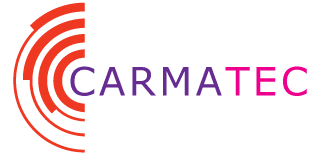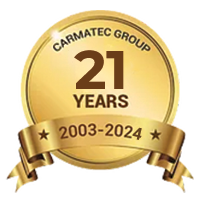The Magento eCommerce platform offers much and is a powerful business tool. To maintain and create successful online businesses, entrepreneurs must keep up-to-date with the latest trends and practices. As a result, Magento web development trends are essential for creating robust websites.
It’s only possible to predict some of the Magento trends for 2025 since it has just begun. Despite this, many trends will remain popular for some time to come. The following trends will be crucial to Magento’s development of online stores.
You can leverage these trends to create an eCommerce website that meets modern demands for your business. To complete your requirements, you need to work with the right Magento development company.
The trends below will help you understand what’s happening in Magento eCommerce development.
Table of Contents
What are the Top Magento Development Trends 2025?
Businesses can use these trends to not only stay ahead of the competition and provide exceptional online experiences but also gain valuable insights. As we discuss the top 10 Magento development trends for 2025, we will analyze the significance of each trend in driving business growth.
Progressive Web Applications (PWAs):
The Magento development scene continues to be dominated by Progressive Web Applications (PWAs). Due to the fast, responsive, and engaging experiences they offer across devices, PWAs will gain even greater traction in 2025. Using Magento’s PWA Studio, developers can create integrated PWAs that improve user engagement, conversion rate, and performance.
Headless Commerce:
With headless commerce, the front-end presentations are separated from the commerce functionality on the back end. As a result of this decoupling, businesses can develop Magento projects with greater flexibility, scalability, and agility.
The headless approach allows companies to integrate emerging technologies into their online stores, creating personalized and immersive shopping experiences like the Internet of Things (IoT), voice assistants, and virtual reality.
AI-Powered Chatbots and Voice Assistants:
To deliver personalized customer experiences, AI-powered chatbots, and voice assistants have become indispensable tools. This intelligent conversational interface will be increasingly integrated into Magento development in 2025. Businesses can streamline the buying process by utilizing machine learning and natural language processing. Chatbots and voice assistants powered by artificial intelligence increase customer satisfaction and increase conversions, and sales.
Enhanced Mobile Experience:
It will be paramount to optimize the mobile experience in 2025 as the mobile commerce market continues to grow. Developers will implement responsive designs and integrate Accelerated Mobile Pages (AMP) as part of Magento’s mobile-first strategy. With mobile usage exceeding desktop usage, businesses must ensure their Magento stores are mobile-friendly. As a result of this optimization, mobile shopping experiences are enhanced by seamless navigation, faster loading times, and an overall better mobile shopping experience.
Augmented Reality (AR) and Virtual Reality (VR):
AR and VR technologies are transforming how customers interact with products online. A VR and AR integration will be key to Magento’s development in 2025 to provide immersive and interactive shopping experiences. With AR and VR integrations in Magento stores, customers can visualize products in real-world environments, interact with them through immersive demos, and try them on in virtual fitting rooms. As a result, customer engagement, trust, and purchase decisions are boosted.
Voice Commerce:
Alexa and Google Assistant have been gaining prominence in voice commerce due to the rise of voice assistants. Magento developers will optimize online stores for voice search and voice commands in 2025. Businesses must structure their product data and content in a voice-friendly manner so that customers can use voice commands to browse, search, and purchase products. The growing segment of voice-enabled device users can benefit from voice commerce by simplifying the buying process.
Omni-Channel Integration:
Businesses must create a seamless and consistent customer experience across multiple channels in 2025. Customers can switch between devices and platforms while maintaining a unified experience with Magento development. Magento’s capabilities enable smooth transitions, customized recommendations, and synchronized customer data across desktop, mobile, social media, and brick-and-mortar stores, ultimately enhancing customer loyalty and driving sales.
Hyper-Personalization:
Personalized content is delivered to individuals in a hyper-personalization process. With the help of machine learning algorithms, artificial intelligence tools, and customer data, Magento will develop a personalized shopping experience in 2025. Businesses can tailor product recommendations, pricing, and promotions to individual customers based on customer behavior, preferences, and purchase history.
Integration with Marketplaces and Social Commerce:
Magento stores will increasingly be integrated with popular marketplaces and social commerce platforms in 2025 as businesses seek to expand their reach and reach a larger customer base. By seamlessly integrating with Amazon, eBay, and social media networks, businesses can increase brand visibility, simplify product listing management, and take advantage of the vast user bases and targeted advertising options these platforms offer, resulting in increased traffic and sales.
Enhanced Security and Compliance:
Magento, developers in 2025 need to ensure robust security and compliance measures due to heightened cybersecurity threats and privacy regulations. Data protection laws such as GDPR, CCPA, and advanced security protocols are all part of this trend. Businesses can protect sensitive data, build customer trust, and mitigate the risk of data breaches or legal liabilities by prioritizing security and compliance.
How To Choose The Right Magento Development Trends?
To stay competitive and meet the changing needs of your customers, you need to choose the right Magento development trends. To help you make informed decisions, consider the following:
Understand Your Business Goals:
Clearly defining your business goals and objectives is the first step to achieving them. Defining your goals for Magento development will help you achieve them. When you align the trends with your business goals, you can choose the most relevant and impactful ones for your objectives.
Study Market and Industry Trends:
Maintain an up-to-date understanding of the latest market and industry trends associated with Magento development. Gain insights into emerging technologies and practices by following industry blogs, attending conferences, and engaging with Magento developer communities. Analyze how successful businesses are in adopting these trends. Your business objectives can be aligned with these trends if you have this knowledge.
Know Your Target Audience:
Understanding your target audience’s preferences and behaviors is crucial before selecting Magento development trends. Consider the demographics of your customers, their preferred devices and platforms, and their expectations for an easy online shopping experience. For example, mobile optimization, personalized recommendations, or voice commerce can be prioritized by knowing your audience and what they need.
Evaluate Technical Feasibility:
Incorporate different trends into your Magento development environment if they are technically feasible. Identify any significant changes or upgrades that need to be made to your infrastructure, systems, and resources. It’s important to evaluate whether you can adopt and leverage certain trends effectively if they require additional expertise, integrations, or investment.
Analyze Cost and Return on Investment (ROI):
There are costs associated with each Magento development trend. Ensure the chosen trends can be implemented and maintained with the necessary financial resources. Determine whether improved user experience, higher conversion rates, or operational efficiency will lead to a return on investment (ROI). It’s important to make certain that the expected benefits outweigh the costs involved and that they are aligned with your business goals.
Prioritize User Experience:
When making decisions, you should put the user experience first. Consider each trend’s contribution to improving the overall user experience on your Magento store.
Several factors should be considered, including the website’s performance, responsiveness, ease of navigation, personalization, and engagement. Consider trends that can provide your customers with meaningful and seamless experiences.
Seek Expert Advice:
You may wish to seek advice from industry experts or Magento development agencies if you are unsure of which Magento development trends to choose. Their experience and expertise can provide valuable insights. Professionals can assist you in determining the trends that are most aligned with your business objectives by assessing your specific business needs.
What is the future of Magento?
With Magento’s continued evolution and adaptation to the ever-changing e-commerce landscape, the platform holds several exciting possibilities. The following are some key aspects that indicate Magento’s direction:
Magento 2 as the Foundation:
Its future growth and development will be supported by Magento 2, its latest major version release. Magento 2 provides businesses with a solid platform for building online stores with its improved architecture, enhanced performance, and robust features. As businesses and customers evolve, Magento 2 will be refined and expanded to meet their needs.
Continued Innovation and Feature Enhancements:
The Magento platform consistently introduces innovative features and functionalities to empower businesses. The platform will invest in research and development to stay ahead of the competition. User experiences will be enhanced, personalization will be enhanced, performance will be optimized, and store management will be simplified with more advanced features, tools, and integrations.
Embracing New Technologies:
Magento will embrace emerging technologies to drive innovation and provide cutting-edge solutions to businesses. AI, ML, augmented reality, VR, IoT, and voice commerce are among the technologies that can be leveraged to do this. These technologies will enhance customer experiences, enable seamless omnichannel integration, and enhance the shopping experience by creating a more immersive and interactive environment.
Expansion of Commerce Capabilities:
Magento will continue to expand its commerce capabilities to meet the needs of different business models and industry verticals. This includes supporting multi-store and multi-brand setups, empowering business-to-business commerce, integrating marketplaces, and enhancing order management and fulfillment. Business needs vary, so we aim to provide flexible and scalable solutions.
Focus on Mobile and Progressive Web Applications (PWAs):
The shift toward mobile commerce and the rise of Progressive Web Applications (PWAs) will play a significant role in the future of Magento. The platform will continue to prioritize mobile optimization and seamless experiences across devices. Expect to see further advancements in PWAs, enabling faster load times, offline functionality, and native-like experiences on mobile devices.
Increased Community and Ecosystem Collaboration:
Magento has a strong and active community of developers, agencies, and partners. The future of Magento lies in fostering collaboration and engagement within this community. Expect to see more contributions, extensions, and integrations from the community and a greater emphasis on knowledge sharing, training resources, and support to help businesses maximize the platform’s potential.
Cloud Commerce and Scalability:
Magento’s cloud commerce offerings, such as Magento Commerce Cloud, will continue to gain traction. Cloud-based solutions provide businesses with scalability, flexibility, and security. Magento will invest in enhancing its cloud offerings, ensuring robust infrastructure, seamless integrations, and efficient management tools for businesses of all sizes.
Conclusion
In 2025, Magento development will be characterized by exciting trends that can help businesses achieve new levels of success. Each trend offers unique opportunities to enhance user experiences, drive conversions, and build customer loyalty, from Progressive Web Applications (PWAs) to Headless Commerce, AI-powered chatbots, and AR/VR experiences. Stay ahead of the competition in the e-commerce services space with these top Magento development trends. To know more about Magento or looking for a development than contact Carmatec.













